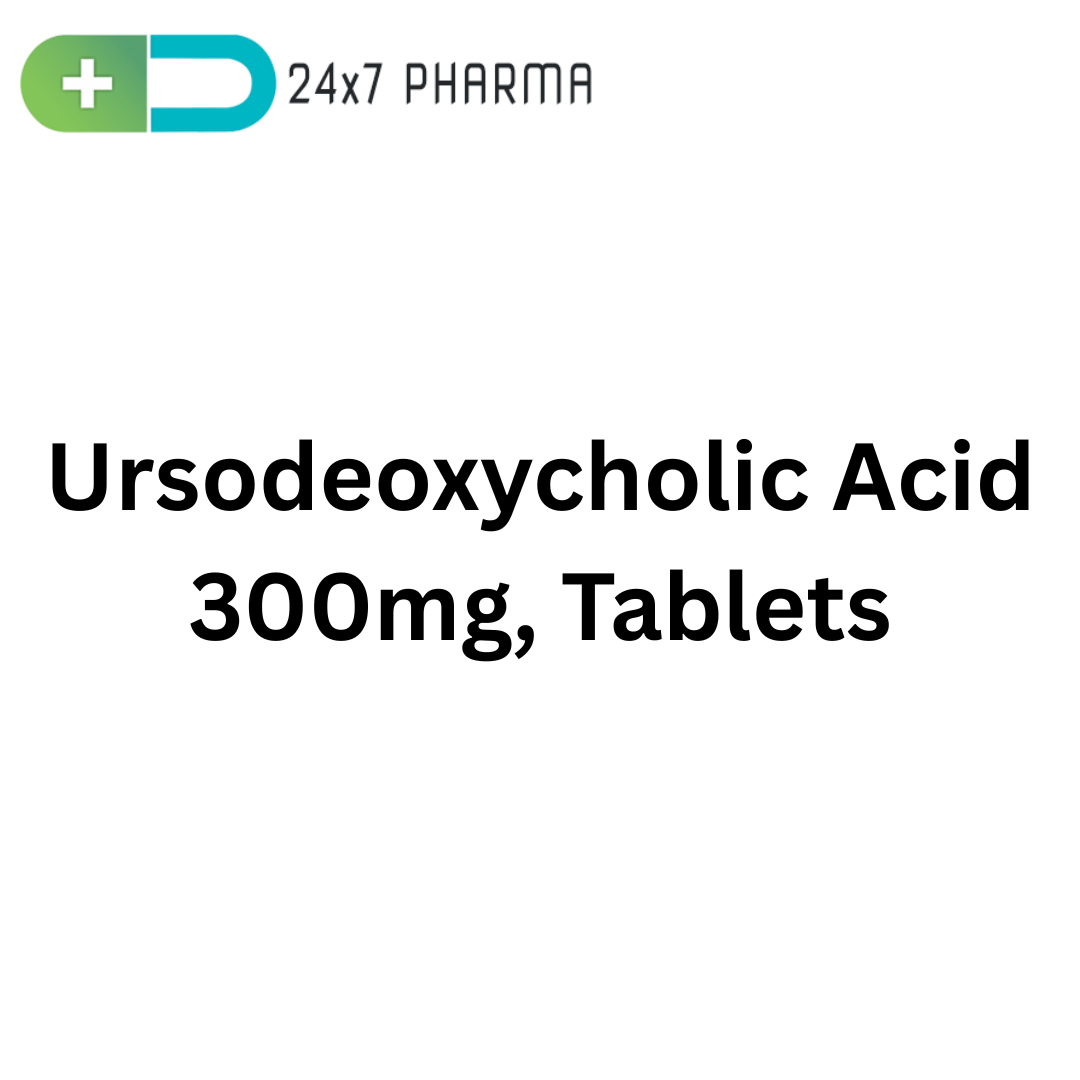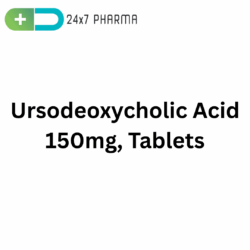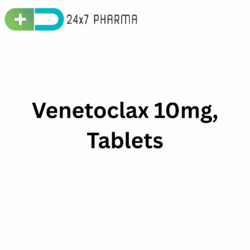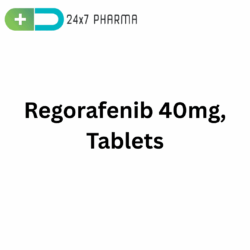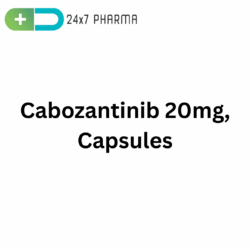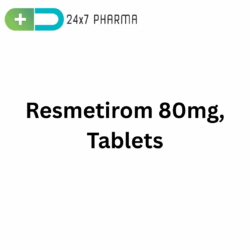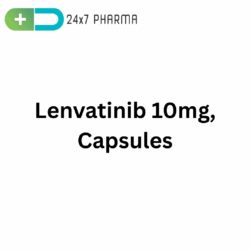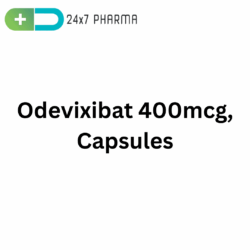Udiliva 300mg, Ursodeoxycholic Acid Tablets
Ursodeoxycholic Acid (UDCA), which is included in Udiliva 300mg, is a commonly prescribed hepatoprotective drug used to treat a number of liver and gallbladder-related disorders. It is primarily known for its ability to dissolve cholesterol gallstones and manage primary biliary cirrhosis (PBC), among other cholestatic liver diseases. This drug improves liver function by protecting liver cells and enhancing bile flow. Manufactured under strict pharmaceutical standards, Udiliva 300mg is trusted by healthcare professionals for its safety and efficacy profile.
What is Udiliva 300mg?
Udiliva 300mg is a bile acid formulation that contains Ursodeoxycholic Acid as its active ingredient. Human bile contains trace amounts of UDCA, a naturally occurring bile acid. The synthetic version used in medications like Udiliva aids in treating disorders where bile flow is impaired or bile becomes toxic to liver cells.
- Drug Class: Hepatoprotective / Cholagogue
- Form: Oral tablets
- Strength: 300mg of Ursodeoxycholic Acid per tablet
How Udiliva Works / Mechanism of Action
Ursodeoxycholic acid works by altering the composition of bile and improving bile flow. Its mechanisms include:
- Cholesterol Solubilization: UDCA reduces cholesterol absorption and secretion in bile, helping dissolve cholesterol-rich gallstones.
- Cytoprotection: It stabilizes hepatocyte (liver cell) membranes, reducing toxic bile acid accumulation that causes liver cell damage.
- Immunomodulation: UDCA suppresses abnormal immune responses that contribute to liver inflammation in diseases like PBC.
- Improved Bile Flow: It promotes bile secretion and prevents bile stagnation, reducing cholestasis and liver inflammation.
- These mechanisms make UDCA effective in protecting liver cells and enhancing the detoxification function of the liver.
How to Use / Indications
Udiliva 300mg is prescribed for several liver and gallbladder conditions, including:
- An autoimmune condition that damages the bile ducts is called primary biliary cirrhosis (PBC).
- Conditions that restrict bile flow are known as cholestatic liver disease.
- Non-alcoholic Fatty Liver Disease (NAFLD): In cases with elevated liver enzymes.
- Gallstone Dissolution: Especially in patients with non-calcified, radiolucent cholesterol gallstones.
- Cystic Fibrosis–related Liver Disease
- Drug-induced Liver Injury: Particularly where bile stasis is involved.
- Always consult a healthcare provider before using Udiliva for any condition.
How to Take / Dosage
Standard Dosage for Adults:
- The usual dose ranges from 8-10 mg/kg/day, divided into two or three doses.
- For a typical adult weighing 60 kg, this amounts to 3–4 tablets of Udiliva 300mg daily, depending on the condition.
Gallstone Dissolution:
- Dose: 8–10 mg/kg/day.
- Duration: 6–24 months depending on gallstone size and response.
Primary Biliary Cirrhosis:
- Starting dose: 13–15 mg/kg/day, divided into 2–4 doses.
Instructions:
- Take the tablet after meals to minimize gastric irritation.
- Swallow whole with a glass of water.
- Continue the medication as advised by your doctor even if symptoms improve.
Other Dosage Forms and Strengths
Udiliva is available in various strengths and forms to suit different clinical requirements:
- Udiliva 150mg – Standard adult dose
- Udiliva 300mg – For patients needing higher doses or once-daily convenience
- Udiliva Suspension – Pediatric or geriatric use where swallowing tablets is difficult
Your physician will choose the appropriate formulation based on your weight, age, and disease severity.
Side Effects
Like all medications, Udiliva may cause side effects, although not everyone experiences them.
Common Side Effects:
- Diarrhea
- Nausea
- Abdominal discomfort
- Flatulence
- Less Common Side Effects:
- Skin rash or itching
- Headache
- Back pain
Rare but Serious Side Effects:
- Severe liver dysfunction
- Gallstone calcification (uncommon)
- Hypersensitivity reactions
- Seek immediate medical help if you experience signs of an allergic reaction (swelling, difficulty breathing, rash).
Storage
- Store below 25°C in a cool, dry place.
- Protect from moisture and direct sunlight.
- Keep out of reach of children.
- Do not use the tablets after the expiry date mentioned on the pack.
Benefits
- Dissolves Gallstones Naturally: Avoids surgical intervention in suitable patients.
- Improves Liver Enzymes: Helps normalize elevated liver enzyme levels in fatty liver and other conditions.
- Slows Disease Progression: Especially in chronic conditions like PBC.
- Enhances Bile Flow: Reduces toxic bile accumulation and protects liver cells.
- Well Tolerated: Suitable for long-term use in chronic conditions.
Prescription
Udiliva 300mg is a prescription-only medicine and should be used under the supervision of a healthcare professional. The dosage, duration, and condition-specific usage need medical evaluation, including:
- Liver function tests
- Ultrasound or imaging (for gallstones)
- Periodic monitoring to assess therapeutic response
Drug Interactions
Inform your doctor about all medications you’re taking. Some interactions include:
- Cholestyramine or Colestipol: These reduce the absorption of UDCA.
- Aluminum hydroxide-containing antacids may hinder absorption.
- Ciprofloxacin or Dapsone: UDCA may slightly reduce their plasma levels.
- Cyclosporine: Levels may increase; careful monitoring needed.
- Oral contraceptives or hormone replacement therapy: May increase cholesterol in bile and reduce UDCA’s effectiveness.
- To minimize interactions, take Udiliva 2–3 hours before or after other medications, as advised by your doctor.
FAQs
Is it safe for children?
Yes, in specific pediatric liver disorders like biliary atresia, under medical supervision and with appropriate dosing.
How long does it take to dissolve gallstones?
It may take 6–24 months. Regular imaging is required to assess progress.
Can I stop taking Udiliva if symptoms improve?
No. Stopping early may cause a recurrence of gallstones or worsening of liver function. Continue as prescribed.
Conclusion
Udiliva 300mg (Ursodeoxycholic Acid) is a valuable medication in the management of cholestatic liver diseases and gallstone-related disorders. Its ability to dissolve cholesterol stones non-surgically and improve bile flow makes it a non-invasive option in hepatology. When used appropriately under medical guidance, it offers substantial liver protection, slows disease progression, and improves quality of life. Regular monitoring and adherence to the prescribed regimen are essential for optimal therapeutic outcomes.

